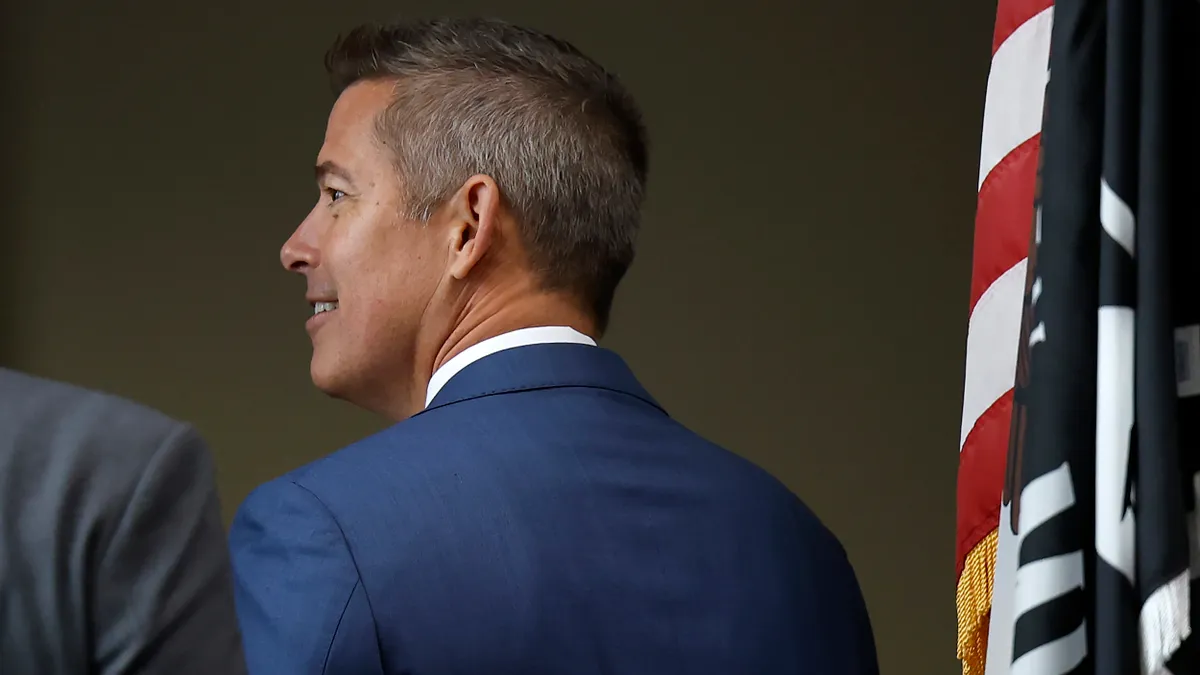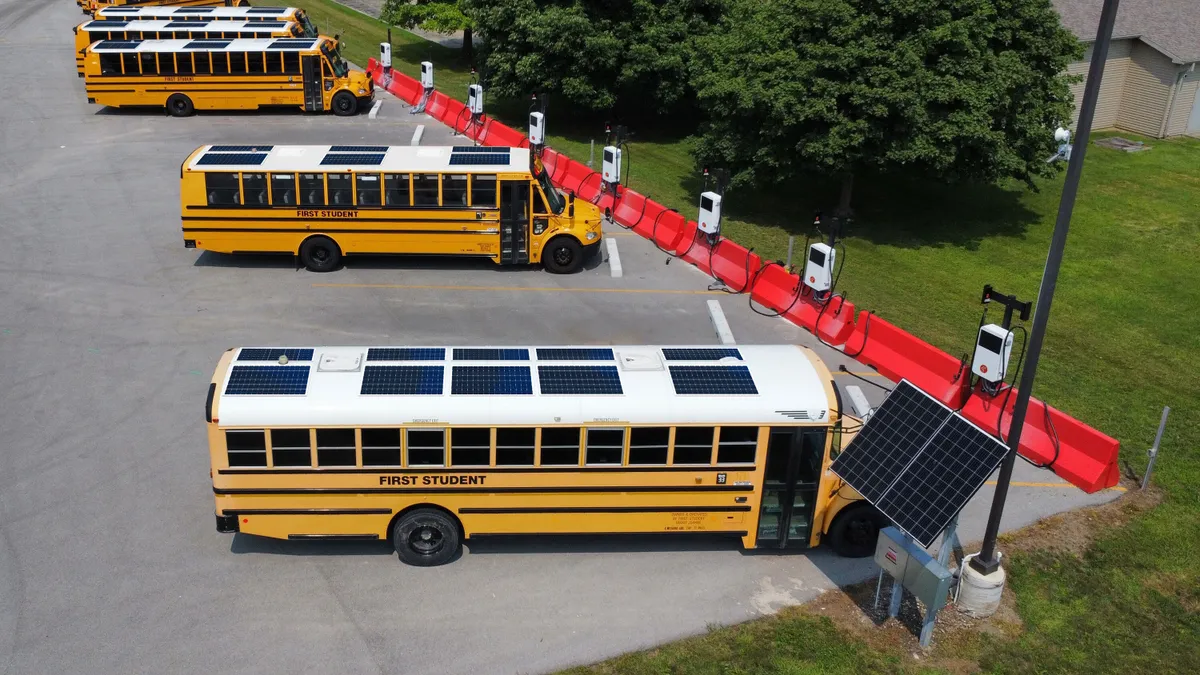UPDATE: Jan. 10, 2025: The Governors Highway Safety Association has endorsed Trump nominee Sean Duffy as the next secretary of the U.S. Department of Transportation.
“The U.S. DOT needs a strong leader, like Sean Duffy, to drive meaningful progress and promote innovation in transportation safety,” said GHSA CEO Jonathan Adkins in a Jan. 8 emailed statement. “We need a Transportation Secretary who can modernize the nation’s roadway safety programs to make them more outcome-focused, efficient, flexible, and responsive to the needs of states and communities across the country.”
Duffy represented Wisconsin’s 7th district in Congress from 2011 to 2019. He joined Fox News in 2020 as a contributor and later served as co-host of “The Bottom Line” on Fox Business. Duffy began meeting with members of Congress in December following his nomination. U.S. Rep. Sam Graves, R-Mo., who chairs the House Transportation and Infrastructure Committee, called Duffy “a great pick for DOT Secretary” in a Nov. 18 Facebook post.
Will the incoming Trump administration rip up Biden-era transportation policies that favored electric vehicles, passenger rail and public transit along with pedestrian and bicycle infrastructure?
President-elect Donald Trump’s transition team recommends eliminating federal tax credits for the purchase or lease of consumer EVs and rolling back spending on Biden’s ambitious $7.5 billion plan to build out a nationwide charging network. But Trump also wants to fast-track permits for those investing $1 billion or more in the U.S. on infrastructure projects, which could include critical minerals and batteries that would aid EV manufacturers.
The future of Trump-led transportation policies may depend on two key players: U.S. Rep. Sam Graves, R-Mo., chair of the influential House Transportation and Infrastructure Committee, and Sean Duffy, Trump’s nominee for transportation secretary.
Graves is likely to continue as chair of the Transportation and Infrastructure Committee. It would be his second term as chair, adding to two prior terms as ranking member, making him familiar with the issues, laws and regulations the transportation department deals with.
“Graves is positioned to exert great influence over transportation policy, including the next highway bill,” said Genevieve Cullen, president of the Electric Drive Transportation Association, in an email. “We see opportunities to work with the 119th Congress, including Chairman Graves and the T&I Committee, and with the Trump Administration on next steps for U.S. leadership in electrification.”
Graves supports permitting reform for infrastructure projects and said in a statement, “We will work with President Trump to advance his infrastructure priorities, developing the next long-term highway bill, and focusing on fixing the real infrastructure that moves people and goods safely and efficiently throughout our country.”
Many House Republicans oppose continued federal funding of California’s high-speed rail project to connect Los Angeles and San Francisco. However, some support other high-speed rail projects, such as the Brightline West venture between Las Vegas and Southern California and the proposed Texas Central project connecting Dallas and Houston.
Sarah Kaufman, director of the New York University Rudin Center for Transportation, expects to see greater investment in autonomous vehicles under the incoming Trump administration. “I think that we'll see some guidance from the federal government, and it's likely that we'll also see more of a permissive attitude about driverless cars from this administration,” she said.
There is likely to be a shift in policy emphasis, Kaufman said. “The Biden administration was focused on improving urban transportation. I'm not sure how much of a commitment the Trump administration will make to intra-urban transportation.”
In the current 118th Congress, the House Transportation and Infrastructure Committee racked up a number of bipartisan achievements. Committee Republicans celebrated legislation to reauthorize the Federal Aviation Administration and passed bills to improve transparency at Amtrak. Meanwhile, in a Sept. 30 statement, House Transportation and Infrastructure Committee Ranking Member Rick Larsen, D-Wash., celebrated the passage of 30 bills during two markup sessions in September, “showing, yet again, that the T&I Committee can get things done in a bipartisan way.”
Duffy, a Republican, served as Wisconsin’s 7th district representative to Congress from 2011 to 2019. His record shows that he sponsored or co-sponsored 33 wide-ranging transportation and public works bills, only two of which were enacted. But Kaufman said, “He's someone who's worked across the aisle, so hopefully he will continue to do so and make the best policies for transportation in the interest of all Americans.”
Larsen said in a statement on Duffy’s nomination, “Transportation policy has a long bipartisan history, and I look forward to continuing to maintain the tradition under Former Representative Sean Duffy’s leadership and working together to pass the next surface transportation authorization, creating more jobs, if he is confirmed as Secretary of the U.S. Department of Transportation.”




















